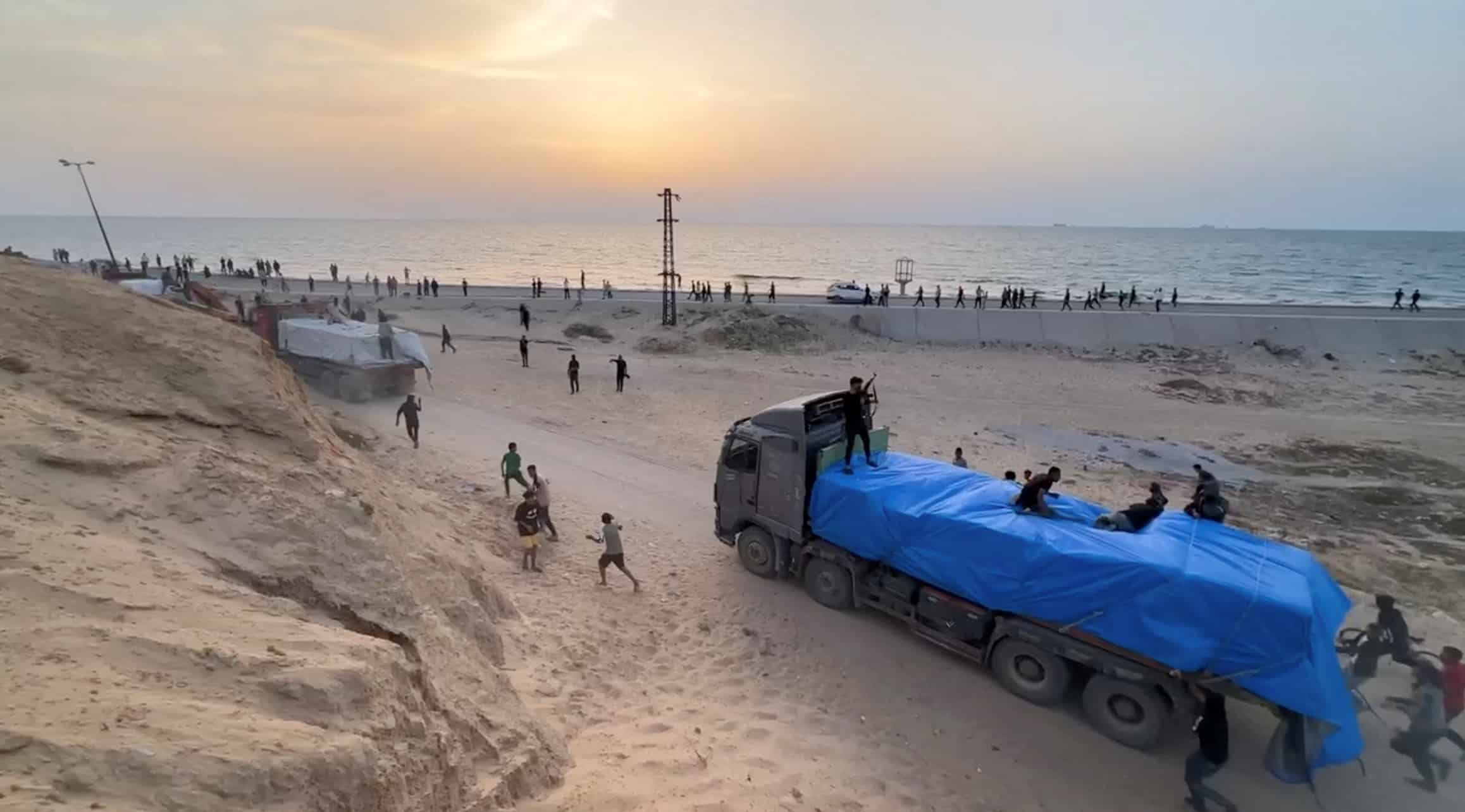Humanitarian aid gathered in Cyprus will reach Gaza “no matter what”, Pentagon spokeswoman Sabrina Singh said on Tuesday.
Singh was being questioned over the state of the temporary jetty, which remains at the Israeli port of Ashdod, but with plans afoot to reattach it to Gaza temporarily to transport all the currently waiting aid from Cyprus into the strip.
She explained that the potential future larger scale use of the Ashdod port to transport humanitarian aid is “essentially in its initial phases” and a concept which “has not been completely solidified” but reaffirmed the United States’ commitment to transporting the aid currently in Cyprus into Gaza.
“No matter what, the aid that is in Cyprus or on our ships right now will get to the people of Gaza in some way, either through the temporary jetty being re-anchored, or through Ashdod in some way,” she said.
She added that she does not know exactly how the aid will be transported, as US forces are “still assessing when and if [the jetty] can be re-anchored”.
“My understanding is that sea states were still pretty high through the weekend, so we will see what this week looks like and then we will provide an update,” she said.
On the matter of the jetty itself, which has faced setbacks and criticism throughout its two-month lifespan, she said a total of 9,000 tonnes of aid have been moved into Gaza using it, “so that is still a success”.
“What it comes down to is the jetty was always going to be temporary, and while we did not set a timeline or a date on when operations would end, we know that, going into later summer … the sea states were just not going to allow the jetty to continue to remain operable,” she said.
She added, “we are working on seeing whether we can re-anchor the jetty.”
“Maybe this week, if we can, we will provide an update, but this is not a political decision so much as it has to do with environmental factors that impact the jetty and operability,” she said.
The Pentagon’s promises regarding aid in Cyprus come days after Cypriot government spokesman Konstantinos Letymbiotis had insisted the jetty’s forthcoming permanent removal “does not affect the continuation of the Amalthea initiative at all”.
He added that when the Amalthea plan – the name given to Cyprus’ maritime humanitarian aid corridor to Gaza – was devised, “we did not have the US administration’s intention to build a jetty in mind.”
The jetty has only been operable for a total of 12 days since first being put into place on May 17, with British newspaper The Guardian having reported earlier in the year that it is only usable when waves are smaller than 1.25 metres in height.
It had broken apart in May during high winds, with four US army vessels which were holding it in place being washed up on a beach near Ashkelon, an Israeli town located between the port of Ashdod and Gaza.
It was taken to Ashdod for repairs before being reattached in early June, but was then removed on two further occasions as officials feared that conditions would lead to it breaking apart again.
In addition to its structural difficulties, the jetty was also impacted by problems regarding delivery after the United Nations World Food Programme (WFP) in June suspended its operations related to the jetty following an Israeli military operation in the area which reportedly killed over 200 Palestinians.
WFP executive director Cindy McCain had said at the time that two of the WFP’s warehouses nearby had been “rocketed” by Israeli forces, and that she was “concerned about the safety of our people”.
Earlier this month, WFP spokeswoman Abeer Etefa was clear that the WFP’s stance had not changed, explaining to the Cyprus Mail that the organisation had engaged in an “exceptional one-off operation” in the last few days to remove the remaining aid from the secure area and into Gaza proper.
“The supplies were cleared from the beach and there is nothing new coming in. It was all cleared out, and has now gone for distribution,” she said.
She added that the WFP’s position on the jetty was that “if more supplies come in [via the jetty], we will not pick them up.”







Click here to change your cookie preferences